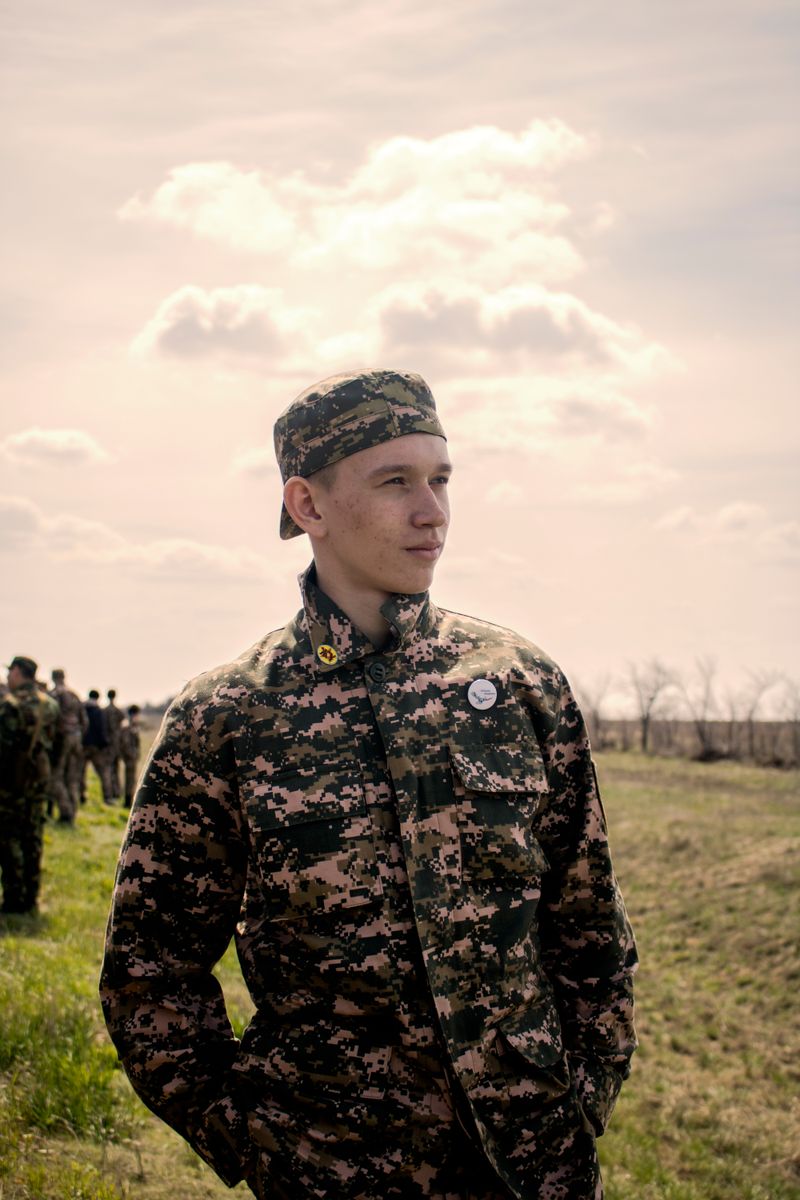Turkey‘s Change in Stance on Sweden‘s NATO Membership: An Analysis
The Historic Step and Its Implications
Turkey has agreed to allow Sweden to join NATO after closed-door negotiations between NATO chief Jens Stoltenberg and the leaders of the two countries. This decision marks a historic step and has significant implications for the security of all NATO allies. Jens Stoltenberg, in a press conference in Vilnius, expressed his satisfaction with the agreement, noting that it benefits all NATO members at a critical time.
The timing of Turkey‘s decision is notable, as it coincides with the announcement by the United States President Joe Biden that the transfer of F-16 fighter jets to Turkey will proceed, in consultation with the US Congress. This move suggests a trade-off between Ankara’s support for Sweden‘s NATO membership and the transfer of military equipment to Turkey.
Further indications of the negotiations surrounding Sweden‘s entry into NATO come from the phone conversation between US Secretary of Defense Lloyd Austin and Turkish Defense Minister Yasar Guler. The conversation focused on Turkey‘s military modernization, highlighting the importance of the US-Turkey defense deal in facilitating the negotiations on Sweden‘s membership.
Turkey‘s Wider Agenda
Turkey‘s decision to support Sweden‘s NATO membership is not merely an isolated event but aligns with Turkey‘s broader agenda towards the West, and specifically towards the US. Istanbul-based Galip Dalay, a non-resident senior fellow at the Middle East Council on Global Affairs, argues that Turkey‘s expectations of acquiring F-16s from the US have been apparent from the beginning of this process.
However, the negotiations with Sweden also served Turkey‘s agenda of normalizing and improving relations with EU countries and the US in general. By leveraging Sweden‘s NATO bid, Turkey sought to address its security concerns and improve its relations with the Western countries.
Ankara’s message to the West regarding its concerns over “terrorism” is of vital importance in this context. Turkish President Recep Tayyip Erdogan aims to make Sweden an example, convincing other Western allies to adopt stricter laws on terrorism. The caveat here is that Ankara’s underlying intention is to push Western countries to take stronger measures against the groups it considers terrorists.
Erdogan also skillfully linked two critical issues in Turkey‘s foreign policy – its EU membership and Sweden‘s NATO bid. By doing so, he aimed to create a favorable environment for Turkey‘s EU talks, which have been stalled since 2016. The joint statement released after the negotiations mentioned the frozen EU accession process and Sweden‘s support for efforts to revive the membership talks. Additionally, Stockholm promised to actively support Turkey‘s desired enhancements, including the modernization of the EU-Turkey Customs Union and visa liberalization.
A Plea for Changes in EU Customs Union and Visa Policy
Turkey has long sought changes in the customs union it has had with the EU since 1996. Despite calls from Ankara and commerce communities in both countries, the EU has not yet agreed to start talks on this issue. Another area of concern for Turkey is the increase in rejected Schengen visa applications by Turkish citizens. Ankara demands visa-free travel for its citizens in Europe, stating that there is no ill-treatment of visa applications by Turkish citizens and emphasizing the need for compliance with the bloc’s criteria for this concession.
Erdogan’s attempt to link Turkey‘s EU talks with Sweden‘s NATO ambitions was quickly rejected by Washington and Berlin. However, his intention was to maximize the benefits for Turkey from this bargain, as well as to avert a possible wider crisis with the West during a period of economic turbulence in his country.
The Future of Sweden‘s NATO Membership
Although Turkey has announced its support for Sweden‘s NATO membership, the final step lies with the ratification of the agreement by Turkey‘s parliament. As of now, there is no set timeline for this process. The closed-door deal between Turkey and Sweden means that the topic will not be discussed at the ongoing NATO summit in Vilnius.
It is worth mentioning that a similar deal was reached in Madrid in June 2022, but Sweden‘s membership did not materialize due to Turkey‘s dissatisfaction with Sweden‘s implementation of the agreement, particularly in countering terrorism. However, since then, Sweden has made changes to its constitution and other laws to strengthen regulations in this area, demonstrating a tougher stance against banned groups and their supporters.
Editorial: Balancing Security and Geopolitical Realities
This shift in Turkey‘s stance on Sweden‘s NATO membership highlights the delicate balance between the pursuit of security interests and geopolitical realities. While Ankara’s decision is undoubtedly influenced by its desire for military equipment and improved relations with the West, there are broader implications to consider.
First and foremost, the inclusion of Sweden in NATO strengthens the alliance and adds another committed member to its ranks. Sweden‘s entry comes at a critical time when NATO faces various challenges, including its relationship with Russia, cyber threats, and terrorism. Sweden‘s expertise and contributions in these areas will undoubtedly benefit the alliance as a whole.
Additionally, Turkey‘s decision has a broader message about the importance of dialogue and compromise in addressing security concerns. By engaging in negotiations and finding common ground, Turkey and Sweden have shown that diplomacy and constructive conversations can lead to positive outcomes.
However, this development also raises questions about the potential impact on NATO‘s unity and cohesion. The varying interests and priorities of member states can create tensions and challenges within the alliance. It is crucial for NATO to navigate these differences and maintain a unified approach to collective defense.
Advice: Strengthening NATO through Collaboration
As NATO moves forward with the inclusion of Sweden as a member, it is essential for the alliance to continue fostering collaboration and cooperation among its members. This includes addressing security concerns, sharing intelligence, and ensuring interoperability among NATO forces.
Furthermore, it is crucial for NATO to maintain a robust dialogue with Turkey and other member states to address the underlying issues that might strain their relationships. Open and transparent communication is key to building trust and resolving potential conflicts within the alliance.
At the same time, it is imperative for NATO to remain a united front against common threats, such as terrorism and cyber attacks. By leveraging the expertise and resources of all member states, NATO can enhance its collective defense capabilities and effectively respond to emerging challenges.
In conclusion, Turkey‘s change in stance on Sweden‘s NATO membership reflects a complex web of geopolitical interests and security considerations. While it presents opportunities for strengthening the alliance, it also underscores the need for continued collaboration and unity within NATO. By navigating these challenges and fostering a spirit of cooperation, NATO can effectively address the evolving security landscape and ensure the collective defense of all its members.

<< photo by August de Richelieu >>
The image is for illustrative purposes only and does not depict the actual situation.
You might want to read !
- Explore the impact of Prime Day 2023 with a focus on the Apple Watch Series 8 discount
Title: “Unveiling Prime Day 2023: The Apple Watch Series 8 steals the spotlight with a 30% discount!”
- Meta’s Stock Surges, Leaving Twitter in the Dust: Analyzing the Threads Launch
- The Power of Meta Stock: How ‘Metamorphosis’ Helped Investors Gain $434 Billion
- Battle at the Borders: USA vs. Canada, 2023 Gold Cup Quarterfinals: Exploring the Clash of Titans
- Sen. Schumer Urges FDA to Investigate PRIME, Logan Paul’s Dangerous Influence on Youth Culture
- Why the Selection of Max Clark as the No. 3 Pick by the Tigers is a Surprising Move
- “Analyzing the Implications of the Türkiye-Sweden Meeting: A Closer Look at the Future of Diplomacy”
- Biden Condemns Erdoğan’s Authoritarianism and Demands Change
- The Influential Legacy of Pat Robertson: A Look at the Broadcaster Who Made Religion Central to Modern Politics.
- Sweden’s Strategic Shift: Bolstering Nato’s Northern Defences
- “Elizabeth Holmes: A Controversial Release from Prison Raises Questions of Justice and Accountability”
- Streamlining B2B Conversations: Pylon’s Solution for Slack
- Behind Bars: Evaluating Elizabeth Holmes’ Prison Sentence and its Implications
- “Freedom Caucus Faces Communication Crisis with Marjorie Taylor Greene”
- Vladimir Putin’s Troubles: Analyzing the Extent of the Crisis
- The geopolitics of Chinese support for Serbia during renewed Kosovo clashes
- Lindsey Graham stands his ground against Russian arrest warrant
- Vivek Ramaswamy’s Unconventional Approach to Fundraising: Paying Supporters to Find Donors
- Controversy Surrounds US Decision to Send Cluster Munitions to Ukraine
- “2023 Mexico vs Panama: Analyzing Picks, Odds, How to Watch, and Stream”




